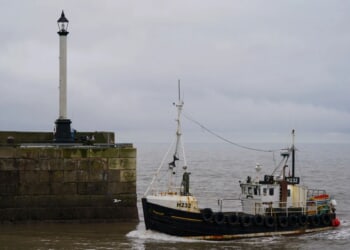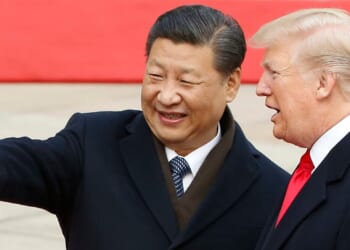William Prescott is a researcher at Bright Blue.
On Friday 28 March Anthony Albanese, the Australian Prime Minister, announced the country would go to the polls on the third of May.
Despite ongoing cost-of-living pressures and a sense of disappointment surrounding his government, however, Albanese appears likely to defeat the conservative Liberal/National Coalition and lead the Australia Labor Party (ALP) to a second term in office, with the Government’s unpopularity proving insufficient for an underwhelming Opposition to take over.
Elected in May 2022 (Australia’s constitution mandates elections every three years) Albanese, like Sir Kier Starmer last July, took office without any great enthusiasm. With less than a third of the primary vote, Australia’s preferential voting system delivered the ALP a narrow two-seat majority in the House of Representatives.
While the Albanese Government rode high in its early months, becoming the first Australian government in a century to win a seat off the opposition at a by-election, the political honeymoon soon ended.
It lost political momentum when a referendum to constitutionally entrench an indigenous advisory body, the Voice, was soundly defeated at a 2023 referendum, with some 60 per cent of the electorate rejecting it. As I noted in a previous piece, this failure took the wind out of the Government’s political sails.
Like British Labour, the Albanese Government has also struggled to address the cost-of-living crisis and turn around the economy. Australia has seen the worst fall in living standards of any OECD member country since 2019 and, in 2024, real wages remained 4.8 per cent lower than in 2019.
While voters were initially reluctant to blame the Government for problems exacerbated by the effects of the Covid-19 pandemic and the Russian invasion of Ukraine, there is a growing sense, after three years in power, that the Government has some responsibility for failing to turn the situation around. Reflecting this, the percentage of voters who see the cost of living as a top issue has increased from 52 per cent in 2022 to 65 per cent in 2025.
With few substantive achievements to its name, even one former secretary of the Australian Council of Trade Unions, Bill Kelty, described the Albanese Government as “mired in mediocrity”.
With the Opposition ruthlessly attacking the Government’s failures on everything from the Voice to immigration and the cost of living, it was hardly surprising that, in October 2024, the Coalition moved ahead of Labor in the two-party preferred vote for the first time since the election.
Yet, despite these problems, Albanese remains the narrow favourite to win next month’s election. According to an MRP poll from YouGov released last weekend, for example, the ALP was projected to win 75 seats in the House of Representatives, just one seat off a majority, with the Coalition languishing on 50 seats. The betting markets also suggest that a Labor minority government is the most likely election outcome.
There are several reasons for this.
First, Australians are reluctant to throw out first-term governments, at least at the federal level. While the Gillard Labor Government nearly lost power in 2010, and there have been four one-term state and territory governments so far this century, Australia has not had a one-term federal government since the Great Depression.
Even governments that have struggled in opinion polls, such as John Howard’s in the lead-up to the 2001 and 2004 elections, have managed to recover by polling day.
Second, while his aggressive approach has inflicted considerable damage on Albanese, Peter Dutton – the leader of the Opposition – has not persuaded the electorate that he can succeed where the Prime Minister has failed.
A proposal to build nuclear power stations to address both concerns around climate change and energy security, unveiled with much fanfare last year, failed to convince voters. More recently, Dutton’s plan to create a strategic gas reserve, announced last weekend, has been criticised for its lack of underlying detail.
Recent missteps have also raised questions about Dutton’s political judgment. His attacks on working from home caused internal unease within the Coalition that it may alienate professional women in crucial seats.
Additionally, his call last month for a constitutional referendum on three separate questions – to allow governments to strip dual citizens of their Australian passports, to introduce four-year terms, and a watered-down recognition of indigenous people in the constitution – made little political sense, not least given the recent failure of the Voice referendum.
Australians have rejected all but eight of the 45 referendum questions put to the electorate since 1901. Even Dutton’s own Shadow Attorney-General quickly downplayed the idea. Unsurprisingly, he has since backtracked.
Finally, the impact of Donald Trump risks undermining Dutton’s campaign. While the effect has been much less dramatic than in Canada, where the Opposition centre-right Conservatives’ 25 percentage point lead in opinion polls has completely evaporated within just a few months, Trump’s tariff threats cause two problems for the Coalition.
First, they distract voters from the Coalition’s messaging around Labor’s policy failings. Second, they have allowed Albanese to link Dutton’s policy stances, such as calls for cuts to government spending cuts, to those of the unpopular US President.
While there remains a month to go before polling day, and the situation may change, the omens are not looking good for Dutton’s Coalition. The Government may be unpopular but, having failed so far to offer a credible alternative, the Opposition has not done enough to overcome history and an adverse geopolitical environment.
With four years before the Tories face a similar electoral test, Kemi Badenoch – or whoever succeeds her – should pay attention.



![Jasmine Crockett Justifies Mass Illegal Immigration With Bizarre Argument [WATCH]](https://www.right2024.com/wp-content/uploads/2025/03/1742007023_Jasmine-Crockett-Justifies-Mass-Illegal-Immigration-With-Bizarre-Argument-WATCH-350x250.jpg)

![NYC Tourist Helicopter Falls into Hudson River, Siemens Executive and Family Among Those Killed [WATCH]](https://www.right2024.com/wp-content/uploads/2025/04/NYC-Tourist-Helicopter-Falls-into-Hudson-River-Siemens-Executive-and-350x250.jpg)
![Red Sox Fan Makes the ‘Catch of the Day’ with Unconventional ‘Glove’ [WATCH]](https://www.right2024.com/wp-content/uploads/2025/04/Red-Sox-Fan-Makes-the-‘Catch-of-the-Day-with-350x250.jpg)









